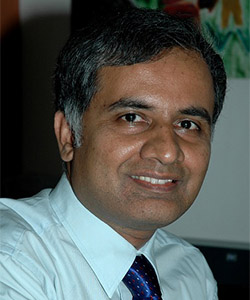Dr Abhishek Mishra is a Full Professor at IIM, Indore in the Marketing Area and Chair of the Industry Interface Office. Rajendra V. Nargundkar is a Professor (Marketing) at Indian Institute of Management (IIM), Indore, India. Shweta Jha is an FPM Scholar (Marketing) at Indian Institute of Management (IIM), Indore, India.
Can an instructor’s performance have an impact on the student’s experience with the course and the institute? If the research conducted at IIM Indore is to be considered, the answer is a resounding yes. Higher education is one of the fundamental pillars of growth and development for a nation, and its future largely depends on the quality of the higher educational institutes (HEI). India has seen a large upsurge in the setting up of HEIs in the last ten years or so, even at the premium level where there are twenty or more IITs and IIMs now. This provides students with ample options to kickstart their post-school education. However, the increase in numbers has forced the supply of institutes to outstrip the demand, which makes many institutes struggle for admissions, as well as recruit high-quality instructors. It has also proven to be a challenge for students to opt for the right institute, both in terms of faculty quality and the appropriate institute for a specific course. Hence, it is critical for HEIs to build a unique identity through ‘rockstar’ instructors and experiential courses that make an institute the top choice for a student. This is what the research tells us, and more importantly, how to do it.
In their research, the authors consider the instructor in an HEI as a mix of a celebrity brand endorser and a high-performer salesperson, who endorses the course as a brand that is close to his/her heart. The analogy is derived from the logic that as a salesperson, the instructor works for the institute, but like a celebrity, carries an aura and transfers the values to the endorsed course brand. Through his actions, an instructor promotes the HEI by understanding its audience, valuing the course that a part of overall collegiate experience, and convinces the audience (students) about their institute and course choice by exemplary in- and out-of-class performance. Just like that for a celebrity endorser or a salesperson, if the individual fails to perform, as expected from the standards of the institute, or indulges in any misconduct, then brands dissociate themselves from that endorser. Traditionally, it is also known that brand spokesperson and instructors are similar in terms of desirable attributes, such as gender, ethnicity, age, techniques and skills, reputation, position, and communication abilities.
The study suggests that the interaction between the students and the instructor plays a significant role in shaping the student course experiences and leads to various behavioural outcomes, which not only includes attitudes and responses toward the instructor but also the HEI. In a classroom, both instructors and students co-create the knowledge as it is an interactive process. In this study, researchers employed a mixed-method approach, a mix of exploratory interviews as well as empirical analysis, to suggest the facets of a high-quality instructor and how those enable the various experiences students to have with a course. Further, they investigated the impact of course experiences on the students’ attitudes and behavioural intentions. For this study, 25 students were interviewed for the exploratory phase, and data from 465 students were collected from the quantitative phase.
The study proposes that the instructor qualities that drive student experiences are the visual appeal, entertainment, escapism, intrinsic enjoyment, efficiency, and service excellence. Visual appeal is the instructor’s physical attractiveness and how well an instructor carries him/her in front of the students. Even in the case of brands, consumer judgments are based on the endorser’s visual aesthetics. Visual aesthetics of the spokesperson enhances the processing of information by consumers. Thus, if an instructor has a physically attractive personality, then it is highly likely that students feel attracted to them and will have a higher recall for that instructor and the course.
Entertainment value is the instructor’s ability to provide a unique experience to students through their teaching style. Instructors can entertain the class by performing like artists do in a theatre to hold the audience attention. When the instructor creates entertainment value for students, they not only find the course a sensorial treat but also form positive sentiments towards it. Therefore, entertainment cues enhance the course experience for students and boost their in-class engagement. Such entertainment can be enhanced through adopting in-class methodologies such as role-plays, case study, projective techniques and other in-class activities to engage the students.
Escapism value denotes a classroom environment, created by the instructor, that enables students to temporarily forget their outside life and become immersed in the classroom experience. To experience an escapist experience, students need to be actively involved in the course with the instructor to attain a new self by transcending to a different time/place. Escapist experiences are highly personal and may differ from individual to individual, but once achieved, it makes students feel comfortable in class, which enhances their course experiences. An instructor who provides escapist experiences not only enables positive sensory stimulations for the course but also activates students’ learning desires.
Intrinsic enjoyment value, a personally gratifying and fruitful experience by the student in the class, generates sentimental experiences and motivates the students to experience the course emotionally. It makes the course playful/fun and creates a unique experience for students. Such classes for students like that are akin to an individual playing a game with full concentration due to the high intrinsic enjoyment gained by the activity. The efficiency value of the instructor is an ability to use the time allocated for class adequately and to ensure full course coverage. The efficiency of an instructor will enhance the student’s perception of the course as it aids in evaluating the benefits derived from the course. For example, in the case of brands, until the spokesperson communication does not highlight the perceived usability, it is highly likely that consumers will not have a higher preference for that brand. Hence, if the instructor is not efficient in, then it is highly likely that students will have a low preference for the course. Finally, service excellence is the instructor’s ability to deliver intellectual value through the expertise in their subject and task-related performance. It’s the expertise of an instructor in delivering the course content through effective performance in various class-related tasks, which can shape the perception of students towards the course.
As an outcome of an effective instructor, the study suggests that the students derive four-course experiences: sensory, sentimental, behavioural, and intellectual. The study shows that sensory experiences are the aspects of the course that facilitate student experiences by appealing to their primary senses. It is similar to the taste of good food made by an expert chef making consumers like him/her and the restaurant. Hence, when the course provides sensory experiences to students, then it is highly likely that they will be motivated to re-engage and re-experience the instructor. Sentimental experiences refer to the effects of the course on students’ moods/emotions. The emotional attachment to the course will not only enhance student’s in-class engagement but will also lead to the course advocacy. For example, if a consumer has an emotional attachment to a brand, then they are highly likely to advocate the brand to other prospective consumers.
The study discusses behavioural experiences as significant since it is the functional outcome for which student subscribed a course. For example, if a pen is meant to write, then the consumer will indeed purchase it for its functional utility. In the context of the study, it means that the students need to find the course useful practically. With jobs harder to get, such practical utility of a course will enhance the student engagement. Finally, intellectual experiences drive students’ primary need for further learning following the course exposure. The student’s course experience will highly depend on their need to learn more about the discipline. If a student does not want to learn more about a course, then it is highly unlikely that they will enjoy the class delivery.
While the overall instructor quality affects student course experiences, specifically, the visual appeal, entertainment, and escapism values of the instructor help create sensory course experience. It means that when the instructor appears nice, creates entertainment in class, and creates surreal experiences, students find the course attractive to their basic senses. But when it comes to creating emotional experiences in the course, the instructor should be a source of enjoyment. This implies that providing entertainment, but with little in-class enjoyment through high-quality delivery, is ineffective in creating emotional course experiences. Next, the efficiency and service excellence of the instructor, in the form of effective course coverage with quality content, are instrumental in making the course more intellectually stimulating as well as more practically useful.
The course experience that students get from a high-performance affects the students’ attitudes and drives them to re-engage with and recommend the instructor, the study reveals. The study suggests that students’ sentimental and sensory experiences with the course are key enablers for the recommend and reengagement intentions, while intellectual experience with the course drive the attitudes. This implies that, ultimately, students need to find the course intellectually stimulating to develop a positive attitude toward the instructor, and that the applicability of the concepts taught is not in itself sufficient.
The study offers various guidelines for HEI managers if they want their institute to be considered desirable by prospective students. First, six facets of instructor quality serve as a rubric that, based on student feedback, can enable them to identify/hire high-quality instructors. Second, just like brands leverage effective brand spokespersons for consumer marketing, HEI managers can promote the institute through such high-quality instructor values, such as visual appeal (appearance, communication style), entertainment (ability to engage, energy), escapism (immersive engagement in fun-to-attend sessions), intrinsic enjoyment (personal attention to students, friendliness), efficiency (punctuality, practical applications of knowledge, real-life examples) and service excellence (expertise, task-related performance).
HEI managers can also leverage the multi-dimensional measure of course experiences, measured by sensory, sentimental, behavioural, and intellectual. The marketing campaigns of such institutes should focus not only on the intellectual content of the courses with practical applicability but also on the sensorial and emotional experiences they include to complete the classroom experience. The study shows that such rewarding course experiences create positive instructor-oriented attitudes and behavioural intentions for the students. Thus, student testimonials, in the form of appreciation for such instructors and immersive courses, should be the theme for HEI advertising. The study also highlights that the entertainment and escapism values of instructors do not create sentimental and intellectual course experiences, respectively. These values instead arise from other instructor values, such as intrinsic enjoyment and excellence/efficiency, respectively. Hence, for all the course experiences to be imparted, HEI managers need to ensure that their instructors develop all experiential capabilities. When such qualities are ensured as part of recruitment and training processes, such instructors can be marketed as “complete-packages” that deliver promising pedagogical experiences.
About Dr Abhishek Mishra

Dr Abhishek Mishra is a Full Professor at IIM, Indore in the Marketing Area and Chair of the Industry Interface Office. He is an IIT Roorkee graduate, and in his experience, he has worked as a management consultant for Holcim, the Swiss giant cement maker, followed by Kantar-IMRB as a research consultant. Dr Mishra then had a short stint in academics, with the ICFAI and SMS groups, before he undertook his PhD from IIM Lucknow. He joined IIM Indore after completing his PhD, and his current research interest lies in the area of innovation, product management and new product development. Dr Mishra has already published more than 30 research papers, all of them in leading marketing and information system journals. He has also presented his works at premium international marketing conferences like those organized by the American Marketing Association and the Academy of Marketing Science. Dr Mishra currently teaches courses like Marketing Research and Product Management and New Product Development IIM Indore. He has additional PhD level courses on Latent Variable Modelling and Fuzzy Sets.
About Rajendra V Nargundkar

Rajendra V Nargundkar is a Professor (Marketing) at Indian Institute of Management (IIM), Indore, India. He has done his PhD from Clemson University, USA and an MBA from Indian Institute of Management (IIM), Bangalore, India. He has published textbooks titled ‘Marketing Research: Text & Cases and ‘Services Marketing.’ His research is published in the Academy of Management Journal, Journal of Global Marketing, International Journal of Educational Management and other reputed journals. He teaches Digital Marketing and Tourism Marketing to doctoral and graduate students.
About Shweta Jha

Shweta Jha is an FPM Scholar (Marketing) at Indian Institute of Management (IIM), Indore, India. She has done her Master’s in Business Administration (MBA) from Indian Institute of Information Technology & Management (IIITM), Gwalior, India, and Bachelor’s in Instrumentation Science from the University of Delhi, India. Before joining as a doctoral fellow, she has worked as Research Associate in Research Division at Indian Institute of Foreign Trade (IIFT), New Delhi, India. Her areas of interest in research are consumer psychology, branding, and technological interventions in marketing.




